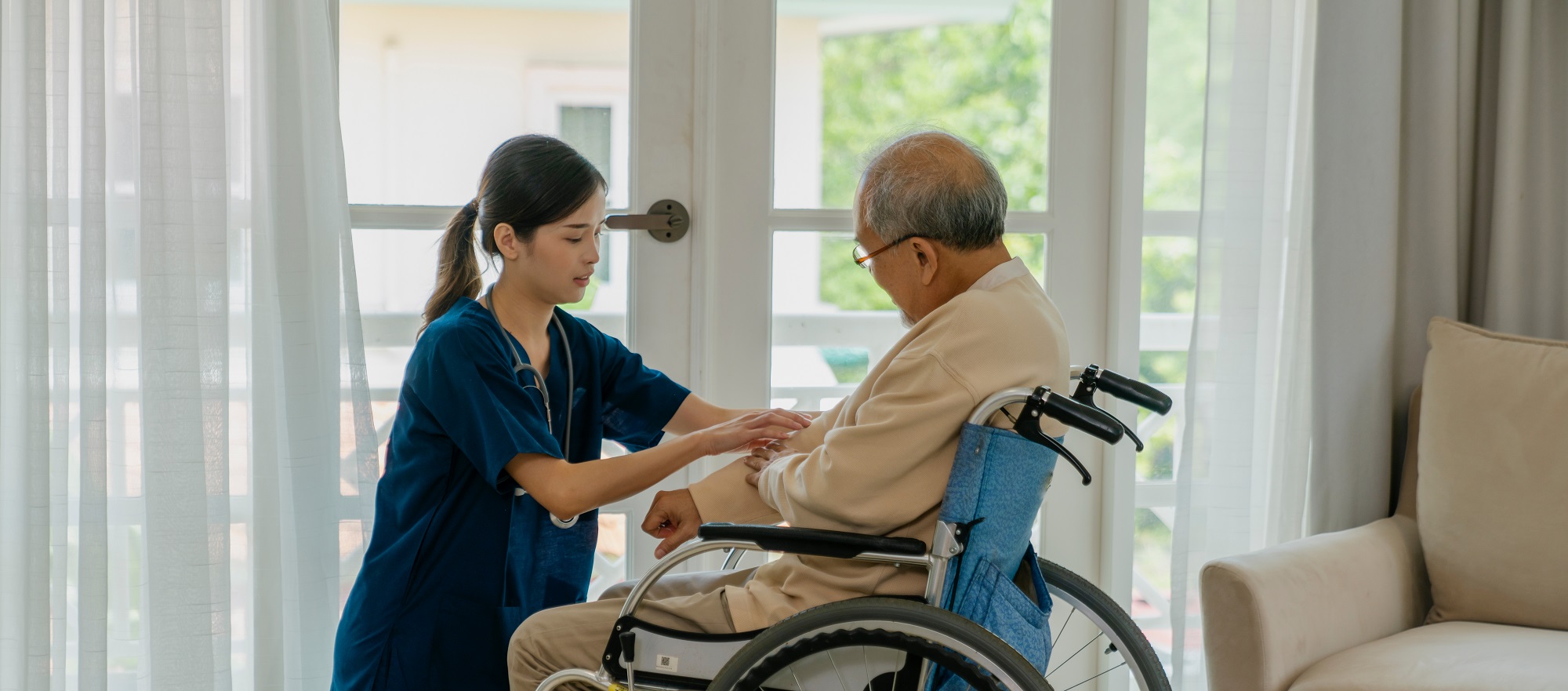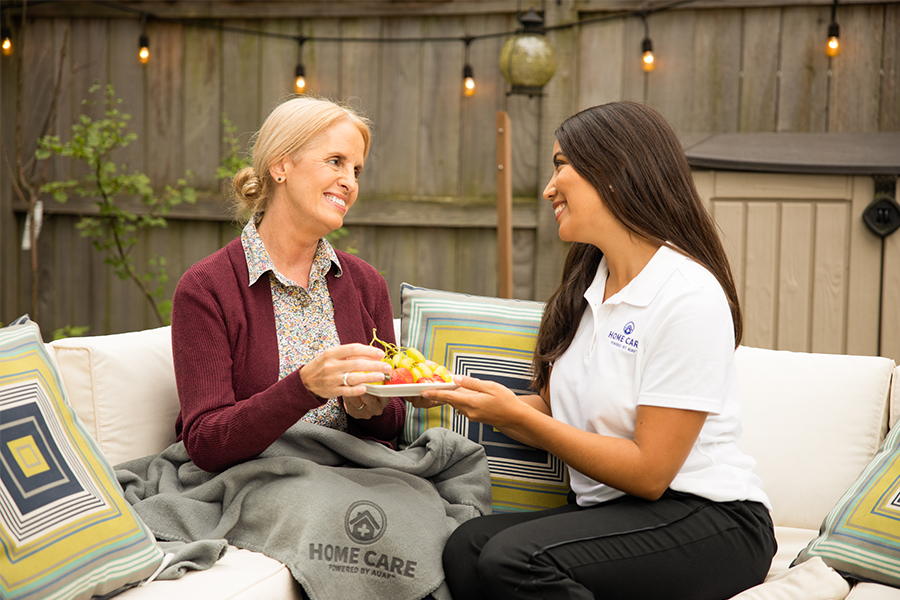Home Care Powered by AUAF is thrilled to have provided seniors in Chicagoland with quality home care services for 30 years as of 2023. It is our absolute privilege to offer older adults the support they require to live comfortably and confidently at home with some of the best services in the area.
If you’re just beginning your exploration into this service, knowing a home care agency cares for its clients is only a fraction of it. You’re likely wondering “what is home care?” more specifically, and if this type of service would even benefit you or your loved one. Thankfully, it is a fantastic option for older adults with a wide variety of needs.
What is home care?
Home care is a type of service that provides seniors assistance with non-medical caregiving at home. Primarily, these caregiving tasks refer to the activities of daily living (or ADLs) one must complete to live healthfully and happily at home. These include activities such as bathing, meal preparation, and companionship.
One crucial distinction to recognize is that at-home caregivers cannot provide medical care. If you or a loved one needs medication administered, your blood pressure taken, physical therapy, or any other procedure performed, you might instead benefit from a home health aide. However, if all you need is help with activities of daily living, an at-home caregiver could be right for you.
At-home caregivers are trained to provide their clients with the compassionate, dignified care they need. These professionals work tirelessly to ensure their client is never left wanting. With their caregiver’s help, seniors can be confident in their homes again.
What services can a home caregiver help with?
When one thinks of home care, personal care is often the first service that comes to mind. While it is certainly an important service offered, at-home caregivers can assist with so much more. They can help seniors who need day-to-day help, as well as those who only need help for a few hours a week. Care services include:
Personal care
Joint and muscle problems can make getting into the shower or lowering to the toilet a challenge. Similarly, Arthritis can make tasks like dressing feel near impossible. Caregivers provide necessary assistance with bathing, dressing, toileting, and other personal care needs to ensure clients are clean and safe from infection.
Meal preparation
Cooking can be exhausting or simply undesirable to many seniors. Caregivers are available to assist with every stage of the meal preparation process. Do you like cooking, but dislike having to plan for a meal and go grocery shopping? A caregiver can take care of that for you. If all of it is too stressful, your caregiver can take over making healthy meals from start to finish.
Medication reminders
Many seniors take a wide array of medications and supplements. Keeping track of what should be taken when, and how much, is confusing. If you need help with remembering what medications need to be taken and when, your caregiver can help. They will work with you to create a system of medication reminders and management that fits your needs.
Light housekeeping and laundry
Especially when spending so much time at home, a sanitary space is crucial. Many seniors, however, find this task exhausting. If you struggle to keep up with cleaning your home or doing your laundry, you could benefit from the help of a caregiver. They can assist with light housekeeping tasks such as sweeping, vacuuming, and dusting, as well as washing, folding, and putting away clothes.
Errands
Even if you once enjoyed running errands, many seniors find the task stressful whether it’s due to mobility issues or trouble driving. Whatever the reason is, your caregiver will gladly pick up any prescriptions, grocery shop, or run any other errand you have. As a result, you can be confident knowing your needs are taken care of.
Brain games and activities
Mental wellness makes a world of difference in your overall health. Caregivers know what brain games and activities are great for boosting your cognitive wellness and will happily partake in them with you. From board games, to puzzles, to crafts, there is something for every senior to enjoy.
Companionship
Aging in place can be isolating—especially for those with mobility issues. Isolation leads to feelings of depression and anxiety, which can even impact one’s cognitive health. Caregivers are available to engage in thoughtful conversation or to simply act as a listening ear.
Home Care Powered by AUAF will gladly assist with any combination of the services above. To learn about whether or not we’re right for you, give us a call at 773-274-9262.










